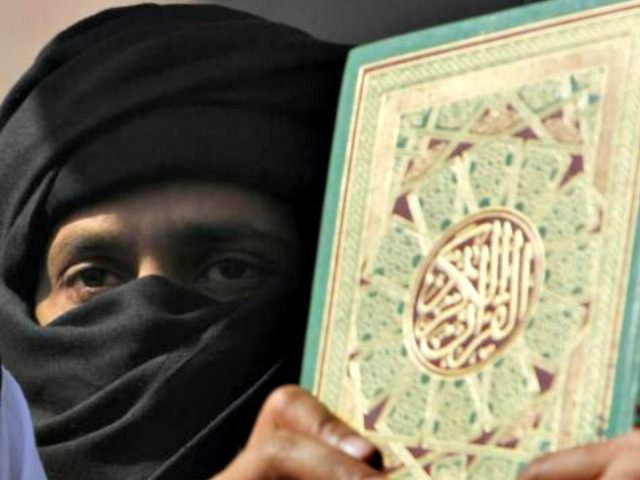A top court in Pakistan recently issued a verdict that deems citizens who refuse to identify their religious faith guilty of “betraying the State” and “exploiting the Constitution,” which has established Islam as the country’s religion and the Quran as a collection of guiding principles behind all laws in the nation.
Refusing to identify their religious faith “can lead” an individual, namely a member of a religious minority, “to gain access to dignified and sensitive posts, along with benefits,” argued Justice Shaukat Aziz Siddiqui, who penned the Islamabad’s High Court’s (IHC) verdict announced on Friday, according to Pakistan’s Dawn newspaper.
The top judge “then reiterated that citizens’ failure to declare their ‘true faith’ was ‘against the spirit and requirements of the Constitution,’” the news outlet revealed.
It is “alarming” that “minorities” are “often mistaken for being Muslims” due to their names and general attire,” added Justice Siddiqui.
Citing the IHC’s verdict, Dawn noted that the court decided, “Citizens’ faith should be mentioned on birth certificates, ID cards, voters’ lists and passports. Compulsory to take oath regarding faith when joining civil service, armed forces or judiciary. Islamiyat and religious studies teachers should be Muslims.”
Pakistan is home to a strict anti-blasphemy law used to violently target Christians and other religious minorities.
Under Pakistan’s controversial blasphemy law, anyone found guilty of insulting Allah, Islam, or religious leaders, including children, can face life in prison or death.
Although Pakistan has yet to execute anyone accused of blasphemy, extremists often take the law into their own hands, punishing and even killing the accused.
Referring to Justice Siddiqui, Dawn reports, “He then interpreted Article 5 as the Constitution making it ‘mandatory’ for every citizen, whether Muslim or non-Muslim, to declare their ‘true faith,’ failing which they could be guilty of ‘betraying the State’ and ‘exploiting the Constitution.'”
IHC also affirmed that individuals seeking public offices must declare their belief in the Prophet Muhammad before being considered eligible to run.
The top court’s decision came in connection with the controversy surrounding amending the Khatm-e-Nabuwwat oath public officials make when they take office, particularly the wording that dealt with a declaration of Muhammad as Allah’s final prophet, notes Dawn.
IHC’s verdict sanctioned Islamabad’s decision last November to capitulate to anti-blasphemy law proponents who took to the streets to violently protest the change to the oath, which the Pakistani government blamed on a “clerical error.”
Last October, demonstrators called for the public hanging of those responsible for amending the oath.
Ultimately, the Pakistani government restored the oath to its original form.
Now, the country’s high court went a step further by requiring that all citizens identify themselves by their faith.
Justice Siddiqui reportedly stressed that the Pakistani Constitution grants “complete religious freedom, including all the basic rights of the minorities [Non-Muslims]” and that the state was bound to “protect their life, wealth, property, dignity and protect their assets as citizens of Pakistan.”
However, he went on to note that the Constitution also demands that citizens remain “faithful” to the “Islamic Republic of Pakistan” and “abide by the rules of law and Constitution.”
The U.S. State Department notes that the Pakistani constitution has established Islam as the religion of the country, explaining, “The constitution and other laws and policies restricted religious freedom and, in practice, the government enforced these restrictions. The constitution establishes Islam as the state religion, and it requires that laws be consistent with Islam.”
Even criticizing Pakistan’s blasphemy law could result in legal problems or even fatalities, notes Voice of America (VOA).
Islamic extremists in Pakistan often hide behind the country’s strict anti-blasphemy laws to target Christians and other religious minorities with violence.
In recent days, young Christians accused of blaspheming said they suffered “torture and sexual abuse” from law enforcement officials looking into the blasphemy allegations.
“One of the country’s top courts recently ordered Pakistan’s Parliament to enact legislation against those who misuse the country’s blasphemy law,” notes VOA.
A Pakistani Senate panel has reportedly come out against misusing the country’s blasphemy law but failed to recommend making changes to the actual statue.
“Pakistanis who make false accusations of blasphemy should receive the same punishment as those convicted of the offense, a special committee on human rights in Pakistan’s Senate recommended Tuesday,” VOA reports.

COMMENTS
Please let us know if you're having issues with commenting.